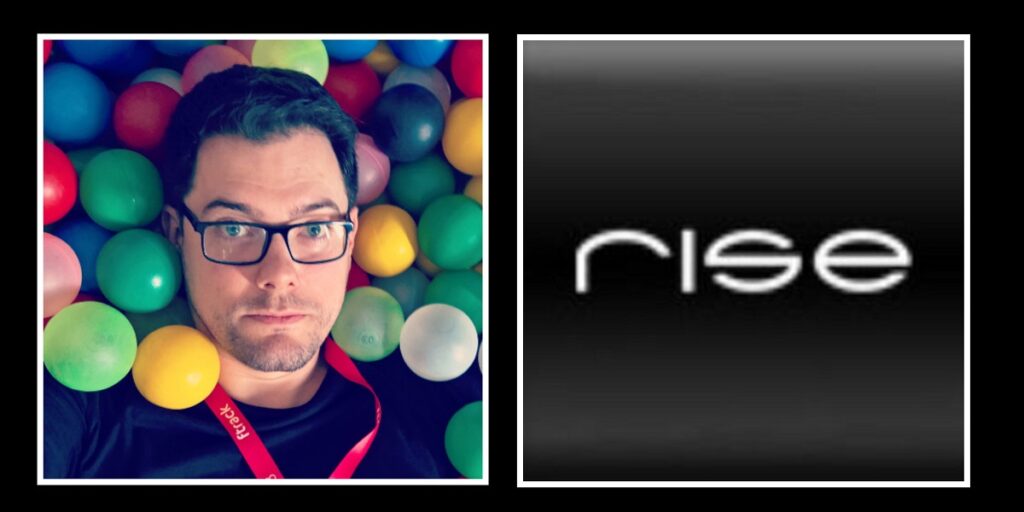Rise VFX Studio, a renowned visual effects company, has been making waves in the industry with its impressive projects, including the Harry Potter series, Fallout and Stowaway.
In this in-depth interview with AnimationXpress sat down with Rise VFX owner and executive VFX supervisor Florian Gellinger to discuss the company’s 17-year-long journey, the team’s approach to diverse artistic styles, and the industry’s current shifts. Excerpts from the conversation:
What inspired you to start your own VFX studio with your friends back in 2007? Were there specific gaps in the industry that motivated you to take the leap?
The creation of Rise VFX was a complete coincidence. The company my partners and I were working for was struggling in advertising but doing well with film and TV work. When that company went bankrupt, we considered going our separate ways – some to London or San Francisco. However, we saw a unique opportunity to build something ourselves, especially since each of us brought different strengths to the table. My initial involvement was in compositing and VFX supervision, but as we grew, I transitioned to an executive producer role to oversee multiple projects and maintain client relationships.
Was there a particular film or series that drew you into the world of visual storytelling?
Movies like Terminator 2 and Jurassic Park in the early ’90s were hugely influential for me. I was a teenager then, and those films sparked my fascination with creating cinematic images using a computer. Before that, I was already into building physical models – it was a journey of following my curiosity and love for creating visuals.
What were the key obstacles you faced in the early days of building Rise VFX, and how did you overcome them?
Consistency in incoming work was a significant challenge. In the beginning, you don’t have the extensive overhead that a larger facility has, so the challenge is to line up the next project without big gaps. As we grew, new challenges emerged with scaling up, like managing the overhead of larger teams and specialized roles. We now have a supportive structure in place, with middle management ensuring departments have the tools, feedback, and support they need.
As an executive producer, how does your approach differ from your early days as a VFX supervisor?
My focus now is more on finding efficiencies. However, the core responsibility remains similar: ensuring the company does well and that people get paid. My background as a VFX supervisor has made my executive role easier – I know the production side inside out, so I can have productive discussions with current VFX supervisors about cost-effective methods.
How does Rise VFX keep each project unique while ensuring the studio’s signature quality remains intact?
Our approach is to stay versatile and adaptable rather than specializing in one particular type of VFX work. This allows us to collaborate with major clients like Amazon, Netflix, Apple, and Disney. Our ability to figure things out, adapt to new challenges, and continuously deliver high-quality work is what makes us a trusted partner for all kinds of clients.
The studio has worked on both gritty films and stylized superhero blockbusters. How does the team balance such diverse artistic styles?
True, but it’s also good for the artists to get some variety on their desks to keep them on their toes. Engaging with people who have experience in similar areas helps, but ultimately, the key to delivering something unique is avoiding repetition.
Collaboration across global teams is critical for large-scale projects. How does your studio ensure smooth communication and coordination between departments and international collaborators?
We set goals on Monday, check in on Wednesday, and do deliveries on Friday. This helps people feel like part of a team, not isolated and alone with all the responsibility of their work. We also prioritize rebuilding company culture, helping everyone feel secure, and maintaining a sense of fun and connection.
What advice would you give to aspiring VFX artists? Should they focus on being generalists or specialists to succeed in the industry?
For their own future, I’d lean toward being more of a generalist, especially with AI reshaping things. Learn the art of creating cinematic images, why some films became iconic, and why others didn’t. Knowing film language matters more than being a software expert because tools are easy to pick up now.
What’s next for Rise VFX, and are there plans to expand the company beyond Germany and London?
We’re currently focused on maintaining the locations we have and catching up a bit, especially on company culture. Once we’re in a good spot with that, then we can think about expanding further.


